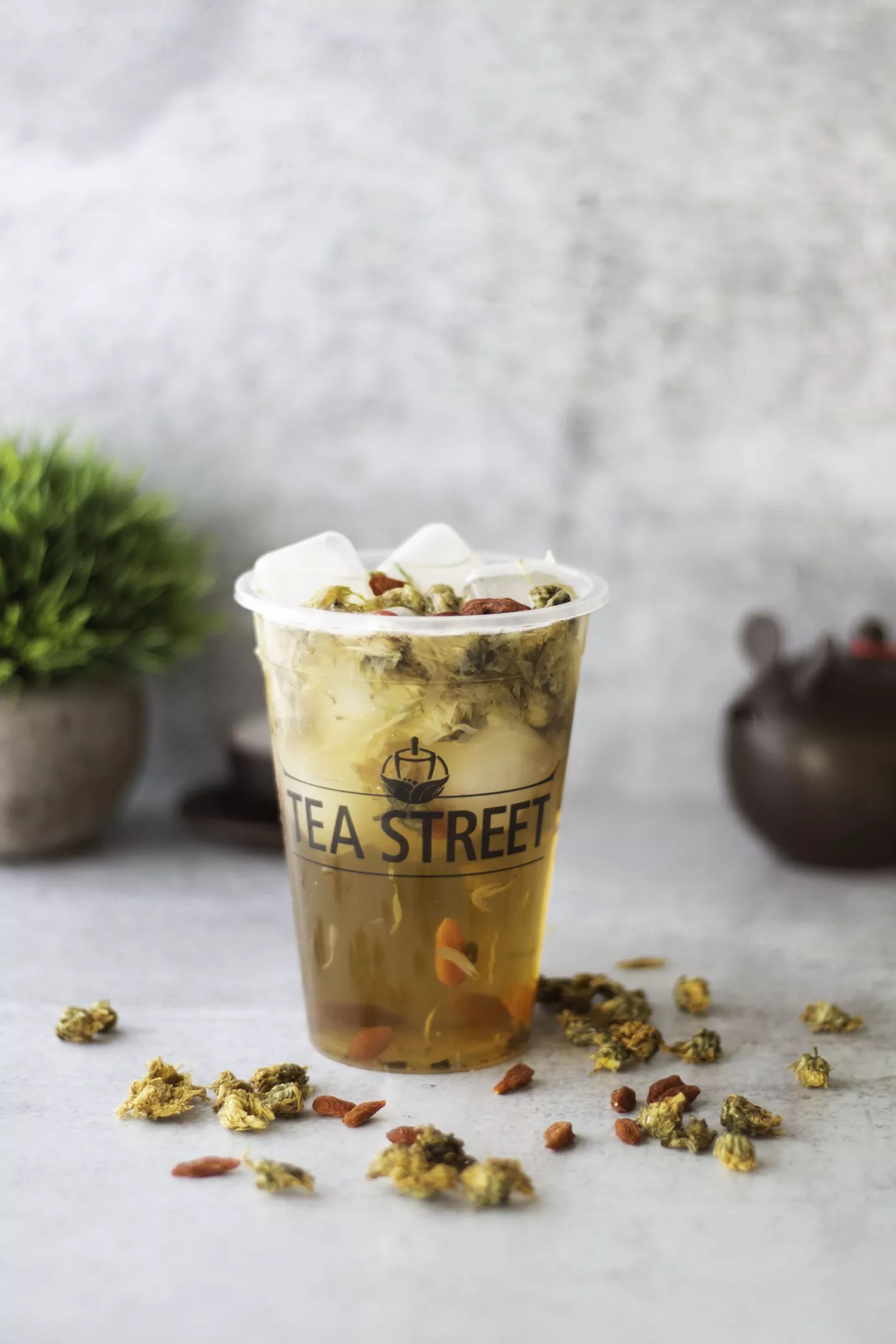
Courtesy of Tea Street

Audio By Carbonatix
The big news in boba is that there isn’t much of it right now. But there’s not so much a boba shortage as there is a boba delay, according to Victoria Lam, co-owner of Tea Street, at 4090 East Mississippi Avenue, and ASA Foods, a food distribution service, along with her brother Patrick. She says this as national headlines are warning that the rest of the country is experiencing a boba crisis. It’s been aggravated as customers have come in with the intention of buying the chewy tapioca balls in bulk before supplies run out.
“Let’s not do the whole toilet paper thing again,” says Victoria. “Order what you need. There will be more.”
But there might be a delay or a dry spell, and that is worrisome for Denver boba tea shops.
Boba originated in Taiwan in the 1980s. They traditionally embellish Taiwanese milk teas, but as they’ve grown in popularity around the world, they’ve found a place in a variety of teas and smoothies. However, in many cases, the boba must still be ordered from Taiwan, and as the pandemic is causing international shipping delays, much of the boba intended for U.S. markets is sitting on cargo ships off the coast of California.
“It’s yet another industry that the pandemic has disrupted,” says Mark Geman, owner and CEO of Bambu franchising and owner of Denver’s Bambu location.
Geman explains that there’s a process for international goods entering the country. Once ships dock in port, their crews have to fill out paperwork and get screened by agencies such as U.S. Customs and the Food and Drug Administration. Small disruptions such as less personnel because of social distancing guidelines can have a ripple effect. “All of a sudden, everything starts to move a little slower than before,” he notes. “And there’s only X amount of slots for the ships to come in.”
The backlog has stranded ships off the coast of port cities like Los Angeles and San Francisco.
“They just can’t get [products] through fast enough,” Patrick Lam adds. And the backlog in North America means the product is sitting in ports across the ocean waiting to be shipped. “Everyone on the other end is waiting for the empty container.”

Bambu, a new drive-thru boba and che shop, is one of many boba-serving tea shops trying to gauge how much shipment delays may affect their business.
Claire Duncombe
The Lams haven’t run out of boba yet. But they know there’s a possibility that there might be shortages.
Their boba orders from Taiwan typically take about four to six weeks, but they’re currently waiting on an order from January – plus a number of orders they’ve placed since then. As a preemptive measure, they’ve also looked into receiving their imports via air cargo, but that would cost far more money, Victoria says.
Bambu is also currently stocked with boba, but the future is unknown. “Not that we were particularly astute in seeing this coming,” Geman says. But with 62 stores around North America, the company has a good relationship with its importer and a sizable back stock that should last a while, he continues. However, “If this goes on for several months, we’ll run into some shortfalls.”
Geman recently helped open a new Bambu drive-thru at 2215 South Broadway. The new store had its grand opening on April 24, and while the shop’s menu boasts a host of options in addition to boba, Geman still doesn’t want the shortage to prevent customers from being able to order boba drinks.
Still, he admits that the shortage could encourage customers to try other toppings and add-ins such as pandan, coffee or grass jellies, coconut meat, avocado or honeydew fruit.
“Bambu is Vietnamese, and we serve all kinds of other teas – using very fresh products like taro. There’s lotus seed and basil seed that are ingredients that people are not as familiar with,” he explains.
The Lams also have a variety of add-ins in addition to boba – some that they create themselves, such as egg custard pudding, which has similar texture to jelly, and sweet red bean and mung bean toppings, which are comparable to the taste of mochi.
But Tea Street is known for its variety of boba, which extends beyond the traditional tapioca balls to popping boba and brown sugar boba, which the Lams make with their own brown sugar caramel.
“There are certain customers [who] are very tied to wanting boba,” Patrick says, adding that if the shop runs out of boba for any reason, those customers don’t order anything at all.
Tea Street is open Wednesday, Thursday and Sunday, 12 to 8 p.m. and Friday and Saturday 12 to 9 p.m. Visit the cafe’s online menu here. Bambu is open daily from 10 a.m. to 8 p.m.; see the drive-thru’s menu here.